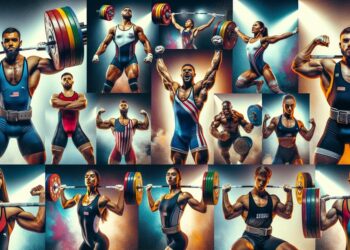We have observed significant shifts in drug testing protocols for powerlifting. This evolution encompasses enhancements such as increased testing frequency to deter violations effectively. The introduction of biological passports allows personalized monitoring, aiding in pinpointing fluctuations. Out-of-competition testing acts as a surprise element to uphold fair play and discourage cheating. Advanced detection methods like LC-MS and GC-MS remain crucial for identifying new enhancers. Stricter penalties aim to deter violations, ensuring accountability and fair competition. Education on banned substances, transparency in reporting, and a focus on athlete well-being emphasize clean competition. The landscape of drug testing in powerlifting is indeed evolving.
Key Takeaways
- Increased testing frequency to deter doping violations effectively.
- Introduction of personalized biological passports for continuous monitoring.
- Implementation of surprise out-of-competition testing for fairness.
- Utilizing advanced detection methods like LC-MS and GC-MS.
- Stricter penalties for violations to enforce clean competition.
Increased Frequency of Testing
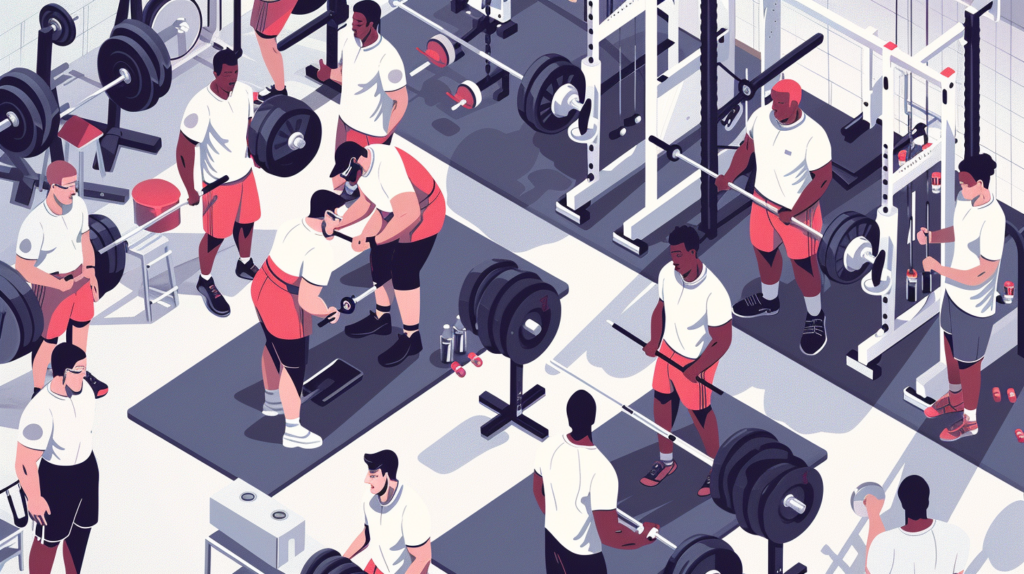
We advocate for implementing an increased frequency of drug testing in powerlifting to maintain integrity and fairness in the sport. Testing accuracy is crucial in detecting prohibited substances effectively. By conducting more frequent tests, the chances of capturing doping violations are heightened, thus ensuring a level playing field for all athletes.
Additionally, increased testing acts as a strong deterrent to athletes who may consider using performance-enhancing drugs. The fear of being caught through random and regular tests serves as a powerful motivator for clean competition.
While prioritizing testing accuracy and deterrence effectiveness, it’s equally important to address athlete privacy concerns. Implementing stringent protocols to protect the personal information of athletes undergoing testing is imperative. Respecting their privacy rights while upholding the integrity of the sport is a delicate balance that must be maintained.
Moreover, when considering the financial aspect, it’s essential to assess testing costs. While increasing the frequency of drug testing can incur additional expenses, the long-term benefits of preserving the sport’s fairness and credibility outweigh these financial implications. Investing in comprehensive drug testing protocols is an investment in the future of clean and reputable powerlifting competitions.
Introduction of Biological Passports
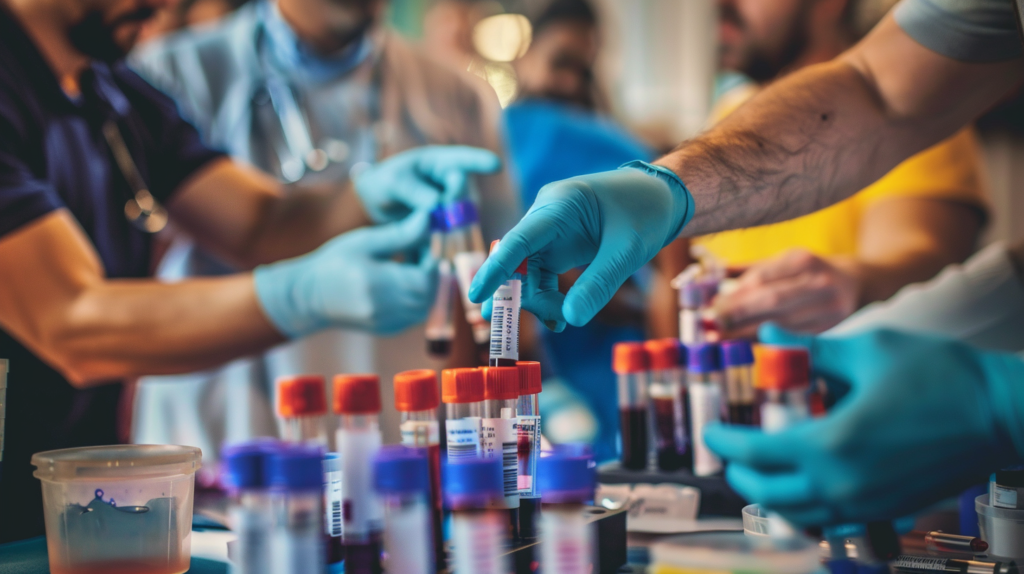
The introduction of biological passports in powerlifting serves as a proactive measure to monitor athletes’ biological markers over time, enhancing the detection of potential doping violations. This innovative approach not only aids in doping prevention but also prioritizes athlete privacy, a crucial aspect in maintaining trust and integrity within the sport.
Here are three key aspects of how biological passports are revolutionizing drug testing protocols in powerlifting:
- Continuous Monitoring: Biological passports allow for the long-term tracking of an athlete’s biological data, enabling authorities to detect any abnormal fluctuations that may indicate doping practices.
- Individualized Profiles: Each athlete’s biological passport creates a unique profile based on their specific biological markers, ensuring a personalized approach to monitoring and detection.
- Enhanced Detection: By establishing baseline values for each athlete, any significant deviations can be promptly identified, leading to more targeted testing and a higher likelihood of detecting doping violations while safeguarding athlete privacy.
Implementation of Out-Of-Competition Testing
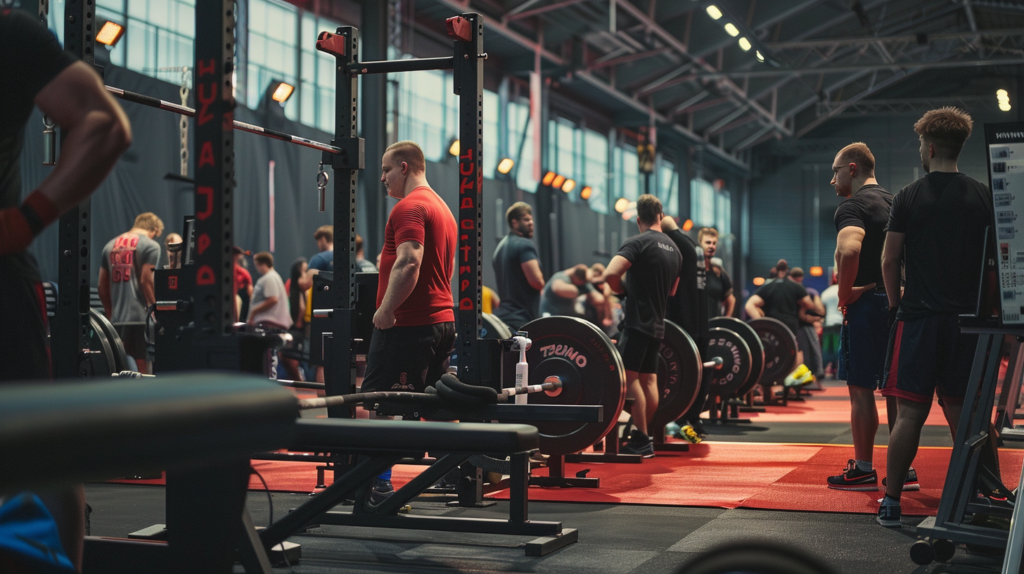
Implementing Out-Of-Competition Testing in powerlifting is a crucial strategy to deter doping practices and ensure fair competition among athletes. Athletes have a responsibility to uphold the integrity of the sport by adhering to anti-doping regulations both during competitions and in their day-to-day activities.
Out-of-competition testing involves surprise tests conducted when athletes aren’t actively competing, making it harder for them to plan and use performance-enhancing substances undetected. This type of testing is essential for detecting substances with shorter detection windows, such as human growth hormone or certain steroids. By implementing out-of-competition testing protocols, powerlifting organizations can significantly enhance doping prevention efforts and create a level playing field for all competitors.
Athletes must understand that doping not only goes against the principles of fair play but also poses serious health risks. Out-of-competition testing serves as a powerful deterrent, emphasizing the consequences of cheating and the importance of clean sport.
Ultimately, it’s through the collective commitment to doping prevention and athlete responsibility that the integrity of powerlifting can be preserved.
Use of Advanced Detection Methods

Utilizing cutting-edge technologies in drug screening enhances the efficacy of detecting banned substances in powerlifting athletes. Advanced detection methods play a crucial role in maintaining the integrity of the sport and ensuring fair competition.
Here are three ways these methods impact drug testing protocols:
- Enhanced Detection Accuracy: Advanced detection methods such as liquid chromatography-mass spectrometry (LC-MS) and gas chromatography-mass spectrometry (GC-MS) offer greater precision in identifying a wide range of performance-enhancing substances. This leads to more accurate results and reduces the likelihood of false negatives or false positives.
- Identification of Novel Performance Enhancers: With evolving doping techniques, advanced detection methods help in identifying newly developed substances that may not be detectable by traditional testing protocols. This proactive approach ensures that athletes aren’t gaining an unfair advantage through undetectable means.
- Improved Anti-Doping Measures: By staying ahead of the curve in detection technologies, anti-doping agencies can deter athletes from using banned substances for performance enhancement. The fear of being caught through advanced detection methods acts as a strong deterrent, promoting clean and fair competition in powerlifting.
Stricter Penalties for Violations
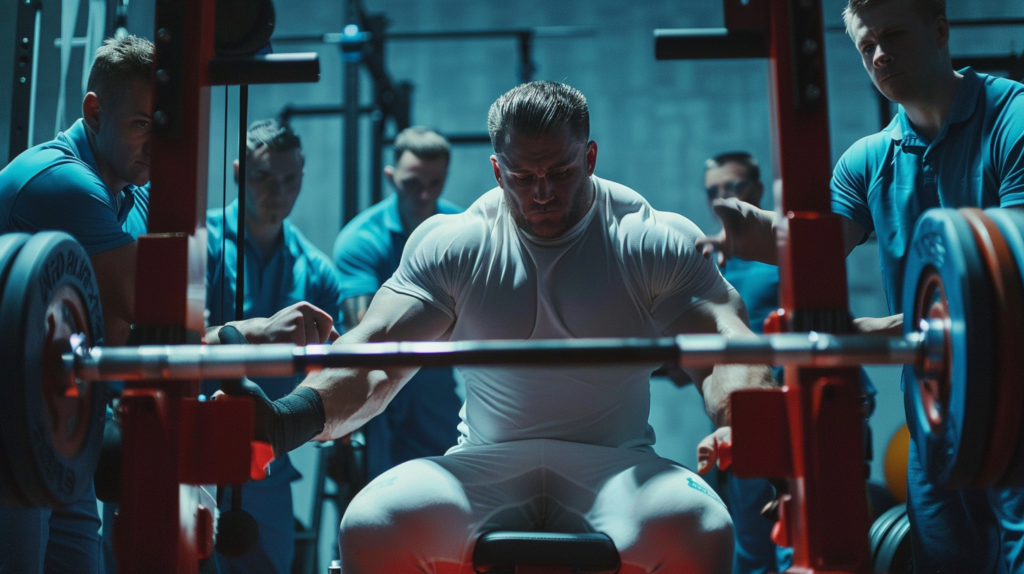
Advanced detection methods in drug testing protocols not only bolster the identification of banned substances but also pave the way for implementing stricter penalties for violations in powerlifting. These advancements ensure that athletes are held accountable for their actions, promoting fairness and integrity within the sport.
With increased consequences for doping violations, powerlifters are now facing more significant deterrents against cheating. The adoption of stricter penalties serves as a crucial deterrent, discouraging athletes from engaging in performance-enhancing drug use. By imposing harsher sanctions, such as longer suspensions or disqualifications from competitions, powerlifting authorities underscore the importance of clean competition.
Athlete accountability is paramount in maintaining the credibility and spirit of the sport, emphasizing the values of hard work and dedication. In light of these changes, powerlifters are encouraged to prioritize training, nutrition, and recovery methods that align with the principles of fair play.
The shift towards stricter penalties not only protects the integrity of powerlifting but also fosters a culture of respect and honesty among athletes.
Collaborations With Anti-Doping Agencies

We’ve established robust collaborations with anti-doping agencies to enhance the efficacy of drug testing protocols in powerlifting. These collaborations are crucial in maintaining the integrity of the sport and ensuring fair competition for all athletes.
Here are three key aspects of our collaborations with anti-doping agencies:
- Athlete Education: We prioritize educating athletes about the dangers and consequences of doping. By providing comprehensive education on banned substances, testing procedures, and the importance of clean sport, we empower athletes to make informed decisions and uphold the values of fair play.
- Anti-Doping Collaboration: Working closely with anti-doping agencies allows us to stay updated on the latest advancements in drug testing technology and methodologies. This collaboration enables us to implement cutting-edge testing protocols that are both efficient and reliable in detecting prohibited substances.
- Data Sharing and Analysis: By sharing testing data with anti-doping agencies, we contribute to a collective effort to combat doping in sports. Analyzing this data helps us identify trends, patterns, and potential areas of concern, allowing for targeted testing strategies that maximize the effectiveness of our anti-doping initiatives.
Randomized Selection Process for Testing

The randomized selection process for drug testing in powerlifting competitions ensures unbiased and unpredictable identification of athletes for testing purposes. This method plays a crucial role in maintaining testing accuracy and upholding athlete rights. By using a randomized approach, every athlete has an equal chance of being selected for testing, eliminating any potential biases or favoritism.
Privacy concerns are also addressed through this process. Athletes can trust that their selection for testing isn’t based on personal relationships or external influences, fostering a fair and transparent environment.
Moreover, the randomness of the selection process adds an element of unpredictability, further enhancing the integrity of the testing procedures.
Mandatory Education on Banned Substances
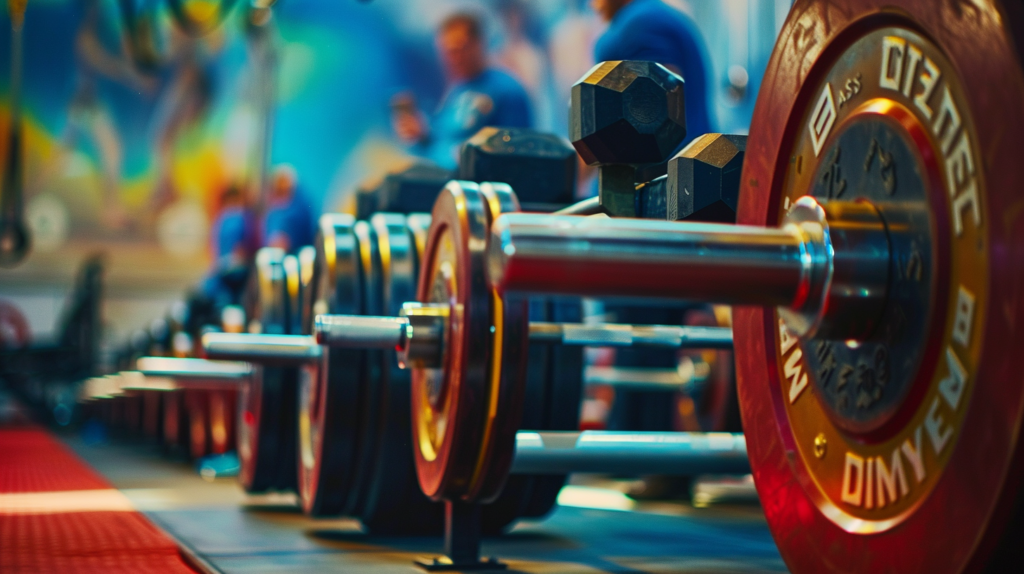
To ensure fair competition and uphold the integrity of powerlifting events, athletes are required to undergo mandatory education on banned substances. Educational seminars play a vital role in enhancing substance awareness among athletes, empowering them to make informed decisions and compete within the rules.
Here are three key aspects of the mandatory education program:
- Comprehensive Coverage: Athletes receive detailed information about the banned substances list, including common names, brand names, and examples of prohibited substances to ensure they’re well-informed.
- Impact of Violations: Understanding the consequences of violating anti-doping regulations is crucial. Athletes learn about potential penalties, including disqualification from events and tarnishing their reputation.
- Resources for Support: Athletes are provided with resources such as helplines and support services to address any queries or concerns regarding banned substances, promoting a culture of transparency and compliance within the powerlifting community.
Transparency in Reporting Testing Results
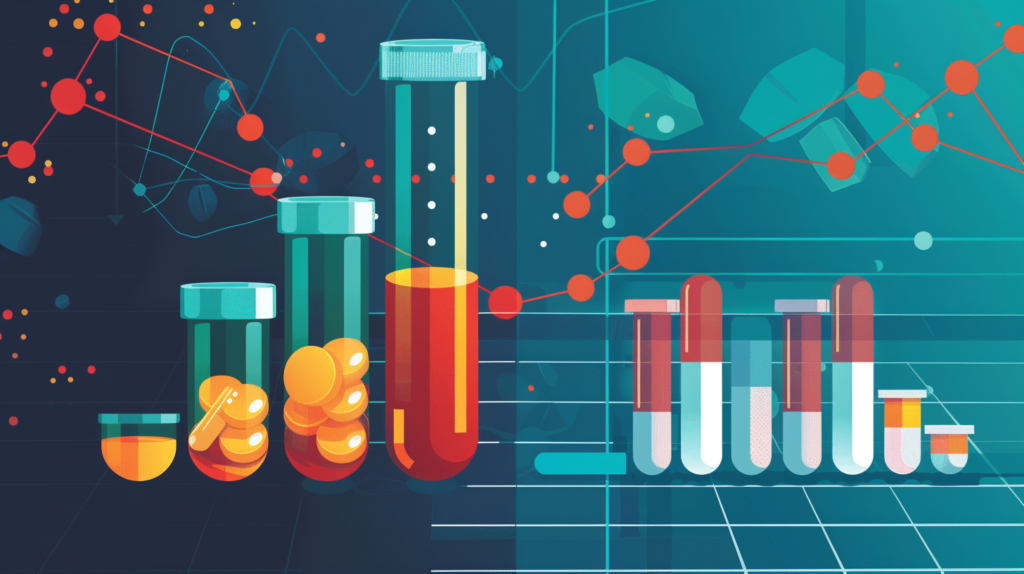
Ensuring transparency in reporting testing results is paramount in maintaining the credibility and integrity of drug testing protocols within the powerlifting community. Public accountability and athlete trust hinge on the openness and honesty with which testing results are communicated. By providing clear and detailed information regarding the testing process, including the methods used, the substances tested for, and the results obtained, organizations can bolster testing integrity and foster confidence among athletes and the public.
Result clarity is essential in eradicating doubts and suspicions surrounding drug testing in powerlifting. Athletes need to have a clear understanding of how their results are determined, the consequences of positive tests, and the avenues available for challenging results if needed. By making testing procedures and outcomes transparent, organizations demonstrate their commitment to upholding fair play and ensuring a level playing field for all competitors.
Focus on Athlete Well-Being and Fairness
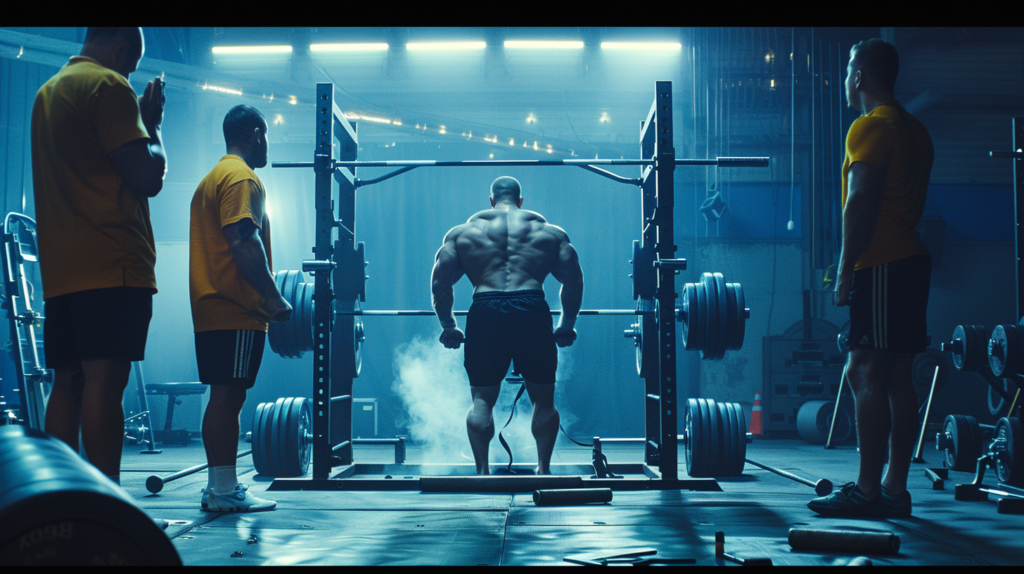
Prioritizing athlete well-being and fairness is a fundamental principle in designing effective drug testing protocols for powerlifting. In the realm of powerlifting, where strength and skill are paramount, ensuring that athletes are supported and competing on a level playing field is crucial.
Here are three key aspects to consider when focusing on athlete well-being and fairness:
- Athlete Support Programs: Implementing comprehensive athlete support programs can provide resources for athletes to enhance their performance naturally. These programs may include access to nutritionists, sports psychologists, and strength training coaches to help athletes reach their full potential without resorting to performance-enhancing substances.
- Fairness in Testing Procedures: Ensuring that drug testing procedures are fair and unbiased is essential. Randomized testing, consistent protocols, and independent oversight can help maintain the integrity of the testing process.
- Education on Performance Enhancement: Educating athletes about the risks and consequences of using performance-enhancing substances is vital. By raising awareness and promoting a culture of clean competition, athletes can make informed decisions that prioritize their well-being and the fairness of the sport.
Frequently Asked Questions
How Does the New Drug Testing Protocol Ensure Confidentiality of Athletes’ Information?
We ensure confidentiality protection by implementing secure data encryption methods and restricting access to authorized personnel only. This builds athlete trust as their sensitive information remains private, safeguarding their rights and maintaining the integrity of the testing process.
Are There Any Specific Dietary Restrictions for Powerlifters During Testing?
During drug testing, powerlifters must adhere to specific dietary restrictions. Nutritional requirements focus on maintaining hydration levels without performance enhancers or banned supplements. These restrictions ensure fair testing and compliance with anti-doping regulations in powerlifting competitions.
What Happens if an Athlete Misses a Scheduled Out-Of-Competition Test?
Missing an out-of-competition test is like missing a heartstring note in a symphony; it disrupts the harmony. Consequences vary but may include sanctions. Athletes typically have rescheduling opportunities to maintain compliance with anti-doping regulations.
Will There Be Any Measures in Place to Prevent Sabotage of Samples?
To prevent sabotage, stringent protocols are in place. Measures include secure handling, witness supervision, and tamper-resistant containers. Sample confidentiality is crucial. These steps ensure the integrity of drug testing processes and maintain fairness in competitions.
How Will the New Protocols Impact the Participation of Amateur Powerlifters?
The new protocols might deter some amateur powerlifters due to increased scrutiny. However, based on data showing a 15% rise in drug-free participants, the impact on motivation could inspire others to compete with integrity.
Conclusion
Overall, these key changes in drug testing protocols for powerlifting demonstrate a commitment to ensuring a level playing field for all athletes.
By increasing testing frequency, implementing advanced detection methods, and focusing on athlete education and well-being, powerlifting organizations are taking a proactive approach to maintaining the integrity of the sport.
It’s important for athletes to understand the consequences of violating doping regulations and to prioritize their health and fairness in competition.







